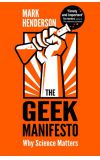
29 May 2012 03:03:31
In 2009, I went to the Penderel's Oak pub near London's high court to address a meeting in defence of Simon Singh. The evening was gloomy and so was my mood. Anyone familiar with public speaking will know that even if a British audience agrees with you, it does so in a spirit of weary resignation. Other countries have revolutionaries. We have grumblers. "It's a bad business, but what can we do?" should be our nation's motto. But not at the Penderel's Oak. The audience was composed of bloggers and scientists from the "skeptic" movement (always spelt with "k"). Mr Justice Eady, a judge who is not at ease with the freedoms of open societies, to put the case against him mildly, had infuriated them by allowing chiropractic therapists to sue Singh for saying that their "alternative remedies" were bogus and on occasion dangerous. In the lawyers' kleptocracy that is modern Britain, the action might have cost the science writer £1m.
Something must be done, they roared, and they did it. Emboldened by their support, Singh fought for his right to warn about dangers to public health and won. The skeptics used their net skills to track down chiropractic therapists who were falsely implying that they could cure childhood ailments. By the time they had finished, the authorities were investigating one in four of Britain's back-bashers. Supposedly feeble nerds launched a movement for libel reform and made it the most dynamic free speech campaign since the battle to overturn the ban on Lady Chatterley's Lover. In short, they turned the defence of the scientific method into a novel and welcome political force.
British skepticism has its entertainers – Dara O'Briain, Tim Minchin, Robin Ince and Dave Gorman – who are not just comics, but persuasive proponents of Enlightenment values. It has a star in Brian Cox and a hero in Simon Singh. Now it has a political programme, The Geek Manifesto by Mark Henderson, a former science editor of the Times. I do not mean to disparage him when I say that he has produced a pamphlet rather than a book that will last. His writing is urgent and for today. He warns that our scientific illiteracy hobbles our chances of finding economic recovery and policy-making that rises above the calamitous. Of Britain's 650 MPs, only one is a research scientist – 158 have a background in business, 90 were political advisers and 86 lawyers.
I could take a cheap shot on the lines of: "Is it any wonder we are so misgoverned?", but journalists have no right to adopt a superior tone. The British media, including supposedly serious newspapers and broadcasters, have propagated every variety of pseudo-science. Their excuse for airing the outlandish view that, say, MMR jabs cause autism is that they are seeking "balance," as if there is a middle way between the tested and the spurious; as if you can announce: "Some people say two plus two equals four, others that it equals five. The truth as ever lies somewhere in between, so let us say it is four and a half."
Henderson is close to despair when he examines the number of students studying science in England and Wales. There are so few of them we do not have enough graduates to supply qualified maths, physics and chemistry teachers to inspire the next generation. We are stuck in permanent intellectual decline and I would, if I could, force every politician in the land to read this book and act on Henderson's conclusion that we need to abolish A-levels and introduce a baccalaureate system that would compel sixth formers to take at least one science subject.
What would happen then is a question Henderson does not pose. He says that to ask where a culture that respected science would lead is to miss the point. Science is about means, not ends. If we wanted to improve public life, we would insist that the state pilot-tested policies before implementing them. What policies the testing would lead to is not his foremost concern. Yet Henderson is not quite as detached as he seems. Like any other political campaigner, he has enemies to confront. He is infuriated that Britain's rulers plaster the country with warnings about threats to health and safety, but allow alternative health practitioners to peddle quack remedies that do not tell the patient they cannot work. He admonishes the greens for their superstitious refusal to allow GM food and nuclear power, and the greens' cousins among the climate-change deniers, who cannot accept restrictions on carbon fuels that affront their prejudices. But he will not touch religion, the greatest source of evidence-denying quackery in the world. Nor in my experience – I am a patron of Westminster Skeptics – does the wider skeptic movement. Women may have their rights denied because of medieval doctrines, divinely ordained homophobes and racists may indoctrinate the credulous, but the majority of skeptics remain in our timid liberal consensus – as frightened of religion as the Victorians were of sex.
Henderson begins by quoting Bertrand Russell's optimistic view that "a habit of basing convictions on evidence… would, if it became general, cure most of the ills from which this world is suffering". I am sure that the dogged old atheist would find much to admire in The Geek Manifesto. But he might also detect a faint whiff of intellectual cowardice.

